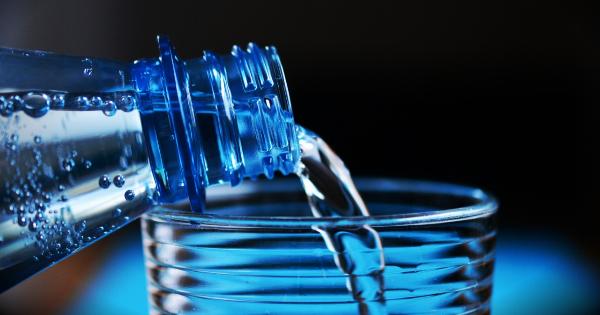Dehydration occurs when your body loses more water than it takes in. It can be caused by various reasons such as excessive sweating, vomiting, diarrhea, or not drinking enough fluids.
Dehydration can range from mild to severe, and it’s important to understand the symptoms and treatments associated with this condition.
Recognizing the Signs of Dehydration
Early detection of dehydration symptoms is crucial in preventing further complications. Some common signs of dehydration include:.
- Dry mouth and increased thirst
- Darker yellow urine or decreased urine output
- Fatigue and weakness
- Dizziness or lightheadedness
- Dry skin
- Headache
If you experience any of these symptoms, it’s essential to take immediate action to rehydrate your body.
The Dangers of Dehydration
Severe dehydration can have serious consequences on your health. Prolonged dehydration can lead to:.
- Heatstroke
- Kidney failure
- Low blood pressure
- Confusion and disorientation
- Rapid breathing and increased heart rate
If you or someone you know is experiencing severe dehydration symptoms, seek emergency medical attention without delay.
Preventing Dehydration
Prevention is key when it comes to dehydration. Here are some tips to help you stay properly hydrated:.
- Drink plenty of fluids throughout the day, especially in hot weather or during physical activity
- Aim to drink at least 8 glasses of water daily
- Avoid excessive consumption of alcohol and caffeine, as they can contribute to dehydration
- Eat foods with high water content, such as fruits and vegetables
- Monitor urine color to ensure you are adequately hydrated
By following these preventive measures, you can reduce the risk of dehydration and keep your body functioning optimally.
Treating Dehydration
If you suspect you are dehydrated, there are several steps you can take to treat the condition. Here’s what you need to do:.
- Drink plenty of fluids, preferably water or oral rehydration solutions
- Take small, frequent sips rather than large volumes at once
- Avoid sugary or caffeinated beverages, as they can worsen dehydration
- Consider drinking electrolyte-rich drinks or consuming foods such as bananas or sports drinks that can restore electrolyte balance
- Rest and avoid exertion until you are adequately rehydrated
While mild cases of dehydration can be managed at home, severe cases may require medical intervention. If symptoms persist or worsen, consult a healthcare professional for further evaluation and treatment.
Dehydration in Specific Populations
While anyone can experience dehydration, specific populations, such as infants, older adults, and athletes, may be more susceptible. Here’s what you need to know about dehydration in these groups:.
Dehydration in Infants
Infants and young children are at a higher risk of dehydration due to their smaller bodies and inability to communicate their thirst adequately. Signs of dehydration in infants include:.
- Dry mouth and tongue
- No tears when crying
- Unusual sleepiness or irritability
- Sunken fontanelle (soft spot on the top of the head)
- Decreased wet diapers
If you notice these symptoms in an infant, consult a pediatrician immediately.
Dehydration in Older Adults
Older adults are more prone to dehydration due to age-related changes in their bodies. Additionally, seniors may have decreased thirst sensation, leading to inadequate fluid intake. Symptoms of dehydration in older adults may include:.
- Confusion or dizziness
- Difficulty walking or unsteady gait
- Dry mucous membranes
- Low blood pressure
- Inability to sweat
If you are caring for an older adult and suspect dehydration, seek medical attention promptly.
Dehydration in Athletes
Athletes, especially those engaged in rigorous physical activity, are prone to dehydration due to excessive sweating. To prevent dehydration during intense workouts or sports activities, athletes should:.
- Drink fluids before, during, and after exercise
- Consume sports drinks that contain electrolytes for replenishment
- Avoid skipping regular hydration breaks
Athletes should also be aware of the signs of dehydration and take prompt action if any symptoms arise.
Conclusion
Dehydration is a serious condition that can have detrimental effects on your health if left untreated. Recognizing the signs of dehydration, preventing its occurrence, and promptly treating it are crucial steps in maintaining overall well-being.
Stay vigilant, drink plenty of fluids, and take care of your body to prevent dehydration and its potential complications.





























